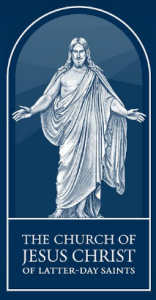The Essentials
Type of Institution: College
Fees per year:
Address: 88 Belvedere Rd, Claremont, Cape Town, 7708, South Africa
Phone Number: +27 21 701 5407
Principal: Stacey Mackaiser
Number of students: 2 000+
Website: https://www.sacob.com/
Email: info@sacob.com
Table Of Contents
- Overview
- Contact Details
- Address
- Location
- School Fees
- Courses & Programs
- Vacancies and Entry Requirements
- Logo
- Notable Alumni
- Pros and Cons
- Author’s Review
Overview
The South African College of Business (SACOB), located in Cape Town, is a specialist institution offering professional qualifications and short courses tailored for individuals looking to launch or advance their careers in business. The college emphasizes building practical skills and enhancing business knowledge through a blend of distance learning and traditional education.
Teaching Approach
SACOB combines the flexibility of online learning with the benefits of interactive, face-to-face sessions. Students benefit from features such as:
Interactive learning platforms
Same-day lecturer responses
Dedicated student advisors offering career guidance
High performance in professional body assessments, with students frequently ranking in the top 10 in various categories.
Unique Features
The college aims to make learning accessible and effective by addressing common challenges in distance education. Its hybrid teaching model ensures that students experience the structure of traditional learning while enjoying the convenience and cost-effectiveness of online education.
South African College of Business Contact Details
You can contact South African College of Business via their landline, email or you can visit their website for further contact details.
Phone Number: +27 21 701 5407
Website: https://www.sacob.com/
Email: info@sacob.com
South African College of Business Address
88 Belvedere Rd, Claremont, Cape Town, 7708, South Africa
South African College of Business Location
South African College of Business is located in the city of Cape Town under the Western Cape of South Africa in a suburb called Claremont on Belvedere Road.
South African College of Business Fees
Please contact The South African College of Business via landline, email or visit them physically to receive the latest and correct current fees structure as it is not listed on their official website.
South African College of Business Courses & Programs
The South African College of Business (SACOB) offers a range of courses, with a strong focus on business and financial management.
Business Management Programs:
ICB Business Management (Foundation to Advanced Levels): Students can start at the foundation level and advance through intermediate and advanced stages. Courses cover essential business skills such as management, leadership, financial reporting, and regulatory frameworks. There are also in-depth courses on subjects like research theory and financial statements.
Bookkeeping and Accounting:
ICB Financial Accounting: This program offers progression from foundation to intermediate and advanced levels. Topics include bookkeeping, asset management, financial statements, taxation, auditing, and cost accounting.
Basic Bookkeeping: This short course focuses on fundamental accounting principles like debits and credits, double-entry bookkeeping, reconciliations, and processing transactions.
Short Courses (Non-Credit Bearing):
Credit Management: This course aims to equip students with knowledge related to credit, debtors, and creditors in alignment with South African laws.
Customer Service & Call Centre Management: Teaches key skills in customer relationship management and call centre operations.
Conference & Events Management: Provides practical knowledge for organizing and managing events.
Financial Management: Offers non-financial professionals insight into financial decision-making and concepts like financial statements, risk and return, and budgeting.
These courses are designed for flexible learning, particularly through distance education, allowing students to build skills while working. Some courses are accredited by the Institute of Certified Bookkeepers (ICB), enhancing their recognition in business and finance sectors.
South African College of Business Vacancies and Entry Requirements
The South African College of Business (SACOB) offers various business-related courses and programs, focusing on fields like administration, bookkeeping, accounting, business management, entrepreneurship, and short courses.
Entry Requirements
SACOB’s entry requirements differ depending on the program or course.
Short Courses typically require a general interest in the subject matter, though prior experience in the field can be beneficial.
Professional Programs (such as accounting and chartered secretary courses) usually require previous qualifications in related fields or relevant work experience. SACOB assesses admissions based on a combination of age, prior accredited learning, and work experience.
Applicants need to meet the minimum academic qualifications specific to the program and may need to submit supporting documents, such as transcripts or work portfolios. The admissions process also takes into consideration the quality and relevance of the applicant’s previous studies or work experience
Vacancies
SACOB allows students to enroll at various times during the year, depending on course schedules. There are no registration fees, and study materials are included in most courses, making it flexible and affordable for learners.
For more information on the programs or vacancies, it’s best to consult their website and admissions team to ensure you meet specific entry criteria based on the course of interest.
South African College of Business Logo
Below is the logo of South African College of Business with excellent quality and it is available to download in PNG (transparent file) JPEG and PDF.
South African College of Business Logo
South African College of Business Pros and Cons
Pros
Flexible Learning Options: SACOB offers both online and distance learning, making it ideal for working professionals or students who cannot attend in-person classes.
Range of Courses: It provides diverse programs, including professional certifications, diplomas, and short courses in fields such as bookkeeping, business management, financial management, and customer service.
Practical Focus: The curriculum is geared towards equipping students with real-world skills, ensuring graduates are workplace-ready. For example, the short courses are designed for quick upskilling in under 12 weeks.
Recognition and Industry Partnerships: Programs like the Chartered Institute of Management Accountants (CIMA) and the Institute of Certified Bookkeepers (ICB) are internationally recognized, enhancing career prospects.
Student Support: SACOB offers personalized support through student advisors, ensuring learners receive guidance throughout their studies.
Cons
Non-Accredited Short Courses: While beneficial for skill-building, some of SACOB’s short courses are non-credit-bearing, which may limit their applicability for academic progression.
Cost: Tuition fees can be a barrier for some students, especially for professional programs like CIMA, which often involve additional examination fees.
Limited In-Person Interaction: The college focuses heavily on online and distance learning, which might not suit students who prefer face-to-face engagement.
Specialization Focus: SACOB primarily caters to business-related fields. This limits options for students looking for courses outside this niche, such as technology or science-based programs.
Author’s Review
The South African College of Business (SACOB) stands out as a reputable institution focused on empowering students with business and professional skills through flexible and accessible learning models.
With its wide range of courses, including internationally recognized qualifications like CIMA and ICB, SACOB is a strong choice for individuals pursuing careers in business, accounting, and management. The college’s emphasis on practical knowledge and personalized student support further enhances its appeal.
However, prospective students should be mindful of a few limitations, such as the non-accredited status of some short courses and the potential financial demands of professional qualifications. The reliance on online and distance learning, while convenient, might not suit everyone’s learning preferences.
Overall, SACOB’s commitment to preparing students for the workforce and its innovative learning approaches make it a significant player in the field of business education in South Africa. It is ideal for those who value flexibility, practical application, and recognized credentials. Students should carefully assess their goals and needs to determine if SACOB aligns with their educational aspirations.



